
|

|
Charlie
aka Polar*
|
CHARLIE aka polar |
*
|
* Charlie is a 3 and a half month old puppy.
He is a beloved family member of Paul, Leslie, their sons and other aussies Marlie and Dewey.
Charlie recently contracted a condition called "Coon Hound Paralysis": http://www.bobmckee.com/Client%20Info/Neurology/Polyradiculoneuritis.html This condition can happen to any of our dogs at any time. People too, can equally succumb.
Charlie was transferred to the Ontario Veterinary Hospital on Monday April 20th, 2009. The paralysis effects the lungs and he was required to be on a ventilator to be able to breathe.
The recovery from condition is very successful though the process to recovery is costly and takes time.
Standard supportive care is what will enable Charlie to full recovery.
The veterinary costs are extremely formidable. Even faced with this, the family choose to give Charlie his deserving chance to life and placed him in the ICU at the University of Guelph.
None of us would ever wish to deal with the emotional torture of having to euthanise our beloved companion just because of finances.
While many of us have had to face extraordinary veterinary costs, this situation surpasses imagination.
Most of us would have no choice but to let our companion 'go' as $1000.00 (plus) per day to veterinary costs is horrendous and intangible.
With Charlie, the recovery is right before him. It is only the escalating veterinary expenses to see him through this time that could force a tragic demise.
Below is the information for those who can extend their compassion for Charlie and his family and contribute donations to buy Charlie time: Time is all he needs to come to a full recovery.
|
*
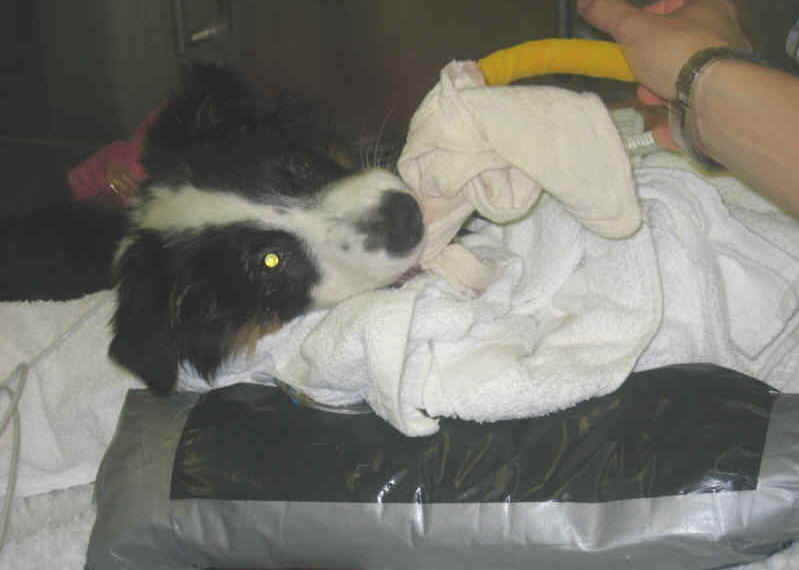
|
*
|
Charlie's Ontario Veterinary Clinic Account # 256665 |
*
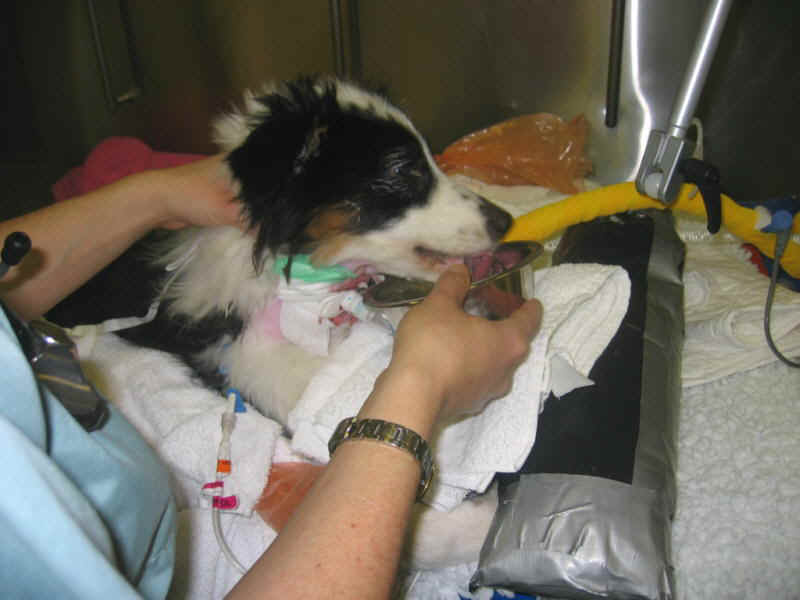
|
Leslie
*
|
On
Sunday night Charlie threw up.
Could have been from eating too much because he loves to eat.
Monday, April 20 2009
Monday
morning Charlie was his happy self…..at lunch he was great too. I
got home from work at 5:00 pm and he was sitting
at the door looking at me kinda funny. I walked toward the kitchen and stopped. I looked back and Charlie was dragging himself along the floor to greet me. I knew at that minute something was wrong. He tried to stand up but kept falling over. I immediately called the Vet and they told me to take him to the emergency clinic. When we arrived at the clinic he seemed to worsen. The vet initially thought that there was a slipped disc in his spine, but they did xrays and there was nothing wrong. By
morning his front legs were paralyzed too. By night he was requiring
IV fluids. Last night we had to transfer him to Ontario Veterinary College in Guelph. He had to be put on a respirator as the neurologist believed he wouldn’t make it through the night. He was panting really hard. The greatest thing is that his tail is wagging, he is still happy. He can’t get up – but he keeps trying. Our bill for two days in Emergency was $ 2300.00. At OVC it is a minimum of $1000.00 per day. The last dog that was in their with Coonhound disease was in for 21 days - $ 30,000.00. If Polar doesn’t recover within one week we simply won’t be able to afford any more. The prognosis is good with time – recovery is slow. It i s just if we get passed this part where he requires the respirator – then we can bring him home and nurse him back to health.
If
there is anyway anyone could help with the OVC respirator expense it would
be extremely grateful.
So
you know - Charlie has only ever been in my backyard - right in
Mississauga.....
He
is on the respirator as of 1:30 am last night.
We kissed him goodnight.
|
*
|
Update April 26, 2009
"Overall things are going well. He is still very weak but possibly some mild improvement. He is still requiring ventilator support and only time will dictate when that can be discontinued. He is eating and drinking well and even playing with some toys this morning as we were trying
to distract him from chewing his IV fluids lines and ventilator tubing!"
Update April 27, 2009 Charlie had to be sedated again, as he kept managing to pull out the respirator tube. The infection around the incision site is being managed with antibiotics. Charlie's family hasn't yet been able to visit him as the veterinarian feels it would add stress to Charlie. Update April 28, 2009 GREAT NEWS! Charlie is breathing on his own !!! and he is off the respirator today!! This is such a tremendous sign of his beginning towards recovery. Charlie is still paralysed and it will be weeks before he gets to the point that he will be able to begin to learn to walk again. He is able to slide himself along the ground...again another very positive sign of his healing. The wound from the tracheotomy will take time to heal but again the key word is " healing " and it has begun! Charlie's family are thrilled that they will be able to visit him tomorrow night. Update April 29, 2009 EXCELLENT NEWS!!!! Not only will the family visit Charlie tonight, Charlie can go home with them!!! Charlie is now able to eat and drink on his own. He cant stand up nor walk yet. It will be atleast a month before he begin to walk...but gratefully, he is improved enough to be at home for the next part of his recovery! Update April 30, 2009 CHARLIE IS AT HOME!!!!!!!!!!!! Charlie is finally at home! He can lift his head and he can wag his tail!! ( I am most glad that I did not have his tail docked...!) Charlie is still paralysed but in time all will be well.
Update May 1, 2009 CHARLIE IS VERY HAPPY AT HOME!!!... Though he is complaining that he cant walk and play with Marlie and Dewey, the other two aussies. Marlie and Dewey are prompting him in encouragement but they will have to be patient along with Charlie. The family is looking for the right professional in their area who can provide the necessary daily physiotherapy for Charlie. It is important that Charlie's temporary paralysis is managed properly so that atrophy doesn't develop as that would be permanently crippling even when the paralysis leaves his system.
It is good that Charlie was very chubby at the beginning of all of this as while he is quite skinny now, it would have been much more extreme had he not had the 'extra' earlier on.
Update May 3, 2009 CHARLIE IS ALERT AND STRONGER EACH DAY!!! Charlie's wound is his neck from the tracheotomy is still troublesome. His bark is still compromised which is part of the effects of the paralysis. But he is eager and stronger each day, holding his head higher and trying hard to sit up.
Update May 4, 2009 CHARLIE LOVES TO WORK FOR FOOD! Charlie is beginning to be able to pull him self along the floor with his front legs! This is such progress. He works to follow a trail of 'kibble', using his front legs to pull himself....rewarding in both the food and the exercise. His family are keeping up with massage of his legs and paws so they don't become rigid and damaged. It appears that the ailment is leaving his system in reverse order that is came on. We hope Charlie will be free of his limitations at a faster rate than considered normal.
Update May 6, 2009 CHARLIE IS GETTING STRONGER EVERY DAY! Yesterday, Charlie began to really try to get up. His front is beginning to be strong again. His rear end is still very weak with little mobility. But his ability to bark has fully returned ! This is very positively significant. The hole in his neck closing over more and more each day. He is now able to roll himself over and over and over. His mobility is progressing and he has returned to his full spirit.
Update May 11, 2009 CHARLIE IS REALLY ON THE MEND!!!
His throat -incision from the tracheotomy-
is completely healed now.
He is able to pull himself up, better and more strongly each day.
we can assume that it will be okay soon as the self-limiting ailment reverses itself the way it came on.
He is filling out again too which will help his muscle development and restoration.
This is a great sign too. Update May 14, 2009 CHARLIE |
*
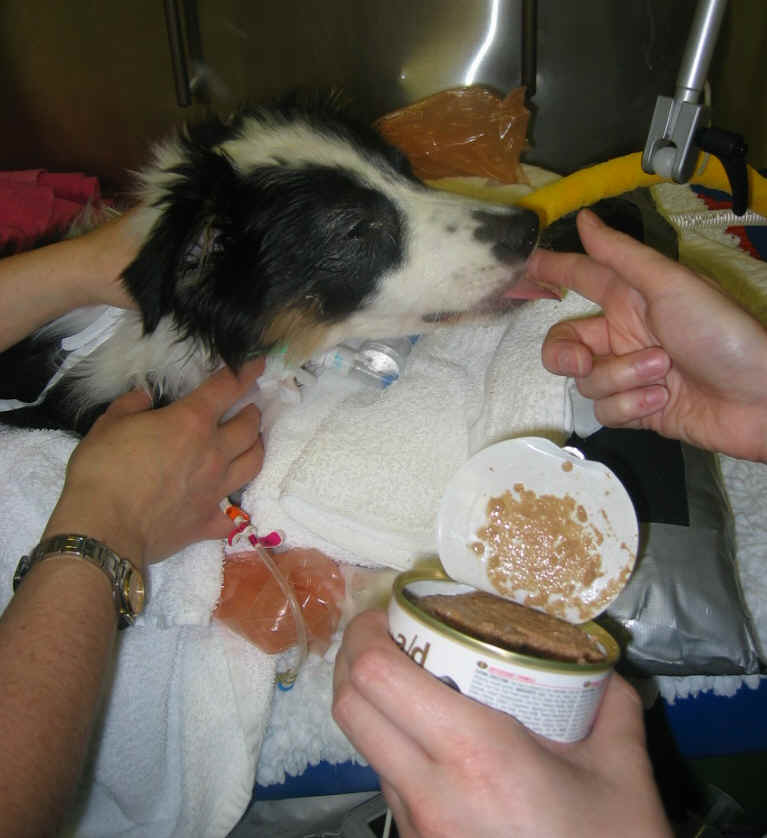
|
*
|
You can make
contributions by sending a cheque or money order to OVC
or by calling OVC with a credit card number.
The contact information is as follows: Small Animal Clinic Ontario Veterinary College Teaching Hospital University of Guelph 50 Stone Road Guelph, Ontario N1G 2W1 519-823-8830 option 5
By credit card: Call the Veterinary Hospital at 519-823-8830 and follow the directions to the billing department - all payments are taken by message on a secure line.
Provide Charlie's patient account number # 256665 as well as Charlie's owners names: Paul Monaghan and Leslie Kidd
If you require additional information, please contact Tanis :
Tanis
Comrie, BA, CHIM
Manager, Client and Information Services OVC Teaching Hospital University of Guelph 519.824.4120 x 54137
Alternately for a credit card donation call the Ontario Veterinary Clinic number 519-824-4120: press 1, then press 1 again, then press 5, then press 2 for the billing department's secure phone number. (wait for the prompts between numbers)
*
It is in the name of "Paul Monaghan in Trust" Transit & Account # is 1536- 6272772
Donatations can be made at TD Canada Trust Branch. The account is payable only to CVO (
The College Of Veterinarians Of Ontario) for the care of Charlie
Kidd (Polar) |
*
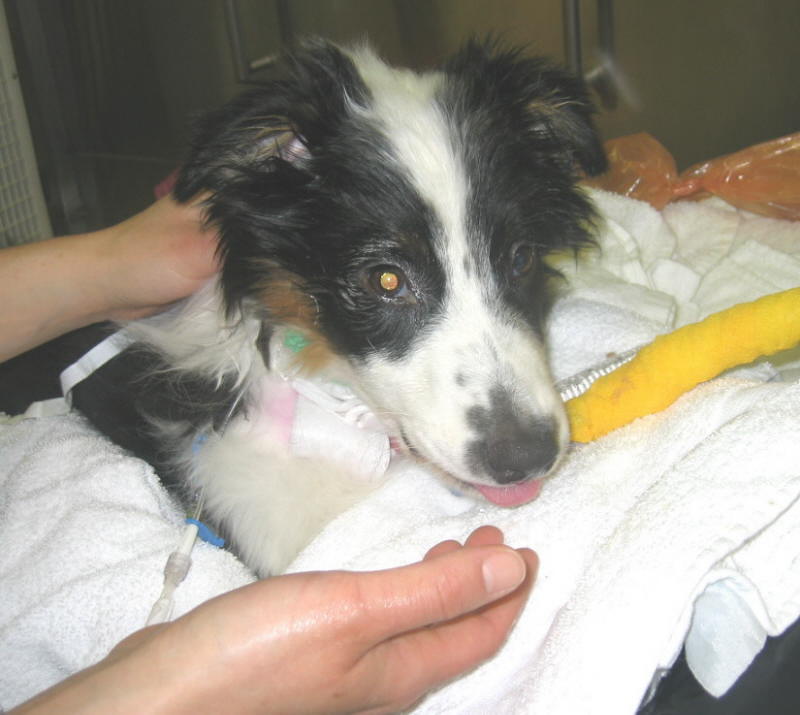
|
*
|
Our heartfelt thank you to all
of you
who have already been able to donate towards Charlie's recovery:
Anniebear & Levi's Family Boomer's Family Callie's Family Mattie's Family Skipper's Family The Vanderpolders
Kokopelli Aussies Robin Aussies
Alicia & "Milo" Cathy & Douglas & "River"Caroline and "Siri" Dwight Huggins Jane & "Grapple" Jeanette & "Darcy" Jo in Texas, In Memory of Everyone's Buddy (9/20/97 - 10/25/08) Julie & "Sasha" Kirsten & Joel, "Polo" and "Logan Paw Prints Studio: www.pawprintsstudio.net/blog
Pam & "Eve" The deVilliers Family & "Connie", "Princess", "Robin&Darren"
For others who have also donated, please let us know who you are so we can also thank you! Email: robin@csolve.net |
*
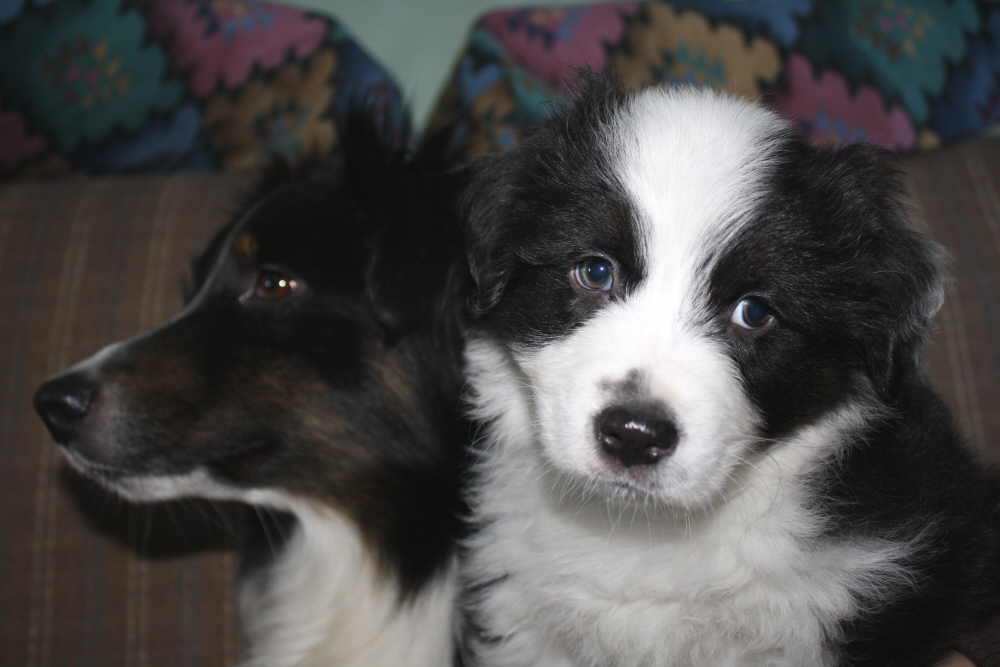
|
Charlie @ 6 weeks with his mom Nomi
*
|
Polyradiculoneuritis (coonhound
paralysis)
Understanding Your Pet's Medical Diagnosis What is coonhound paralysis? Coonhound paralysis is an acute neurologic disorder in dogs affecting the nerves controlling the muscles of the fore- and hind limbs, the muscles of the neck, and the muscles that control breathing and barking.
What causes coonhound paralysis? Coonhound paralysis is suspected to be associated with an overstimulation of a dog's immune system, which may be secondary to contact with a raccoon (and especially raccoon saliva) or another stimulating agent such as a vaccination, a viral respiratory infection, or a viral or bacterial gastrointestinal infection.
What are the signs of coonhound paralysis? Signs will begin 7 to 14 days after contact with a raccoon or other stimulating agent. Initially, affected dogs have a stiff-stilted gait in all limbs that rapidly progresses to various degrees of limb and body weakness, or even paralysis. Voice loss or voice change is also a common early sign. Occasionally, dogs develop weakness of the facial muscles. This will consist of drooping lips, sagging eyes, and an expressionless face. Breathing difficulties may develop in severely affected dogs and, on occasion, this can lead to a complete inability to breathe. Signs progress for 4 to 5 days (occasionally up to 10 days) before the disease stabilizes. However, most dogs will not show immediate improvement in strength at this time. Muscle weakness or paralysis will continue for several weeks and perhaps for up to 4 months. During this time, affected dogs will lose considerable weight due to general muscle wasting. Despite severe signs of weakness (or even paralysis), most dogs remain in good spirits and continue to be responsive to their guardians, even being able to wag their tail. Affected dogs will also be able to eat and drink normally if given the opportunity and will be able to urinate and defecate However, some dogs may be unwilling to perform these tasks in the first few days of the disease.
How is coonhound paralysis diagnosed? Coonhound paralysis has classic clinical and neurologic signs that are often recognized by your veterinarian after a neurologic examination is performed. No routine blood tests are available to confirm this disease. Your veterinarian may recommend more sophisticated tests to confirm a diagnosis of coonhound paralysis that can only be performed by a neurology specialist. These include electrical testing of your dog's nerves and muscles, muscle and nerve biopsy, and a spinal tap.
How is coonhound paralysis treated? Unfortunately, no specific drugs are available to treat coonhound paralysis. High doses of immunoglobulins may shorten the disease course, although they have yet to be proven in dogs and are expensive. Excellent nursing care and physiotherapy are the best treatment. Dogs need frequent turning and a thick, padded bed upon which to lie. The bedding must be constantly kept clean of urine and feces. This will help prevent pressure sores and urine scald. Physiotherapy in the form of passive limb movements and swimming (when your dog becomes a little stronger) are essential to help stimulate muscle strength and movement as well as to limit the degree of muscle wasting.
What is the prognosis of animals with coonhound paralysis? The prognosis is good to
excellent, with most dogs going on to full recovery. Severely affected dogs may
have mild, permanent neurologic deficits. The most important thing for the
guardian of a dog with coonhound paralysis to remember is that the dog may take
up to several months to recover from coonhound paralysis. Unfortunately, dogs do
not build up resistance to recurrence of this disease if reexposed to the same
offending agent. Polyradiculoneuritis is characterized by paralysis that begins in the hindquarters and moves forward, eventually involving the entire body. The disorder was first observed in coon dogs and thus is called "coonhound paralysis." The cause of this disease is unknown, but about half the affected dogs are bitten or scratched by a raccoon 1-2 weeks before the paralysis appears. Most dogs with coonhound paralysis recover fully, though a few develop permanent wasting (atrophy) of some muscles. Mildly affected dogs recover within a few days, while dogs with severe cases may take several months. No immunity results from the disease, and recovered dogs may be affected again at a later date.
Important Points in Treatment 1. Treatment in the early stages of paralysis usually requires hospitalization and intense supportive measures. This includes feeding the dog by artificial means, maintaining eliminations, providing physical therapy for the muscles, and preventing infection. Your dog will be discharged when treatment can be successfully maintained by you at home. 2. You may have to hand-feed and water your dog in some cases. 3. Exercise: Start exercising your dog as soon as it can stand. Initially, exercise periods should be short and frequent: 3-5 minutes, 4-5 times daily. Gradually increase the exercise periods to 15-20 minutes. 4. Environment: Keep your dog on warm, soft bedding while it is incapacitated. If "bed sores" develop, apply padding to protect those areas.
|
*
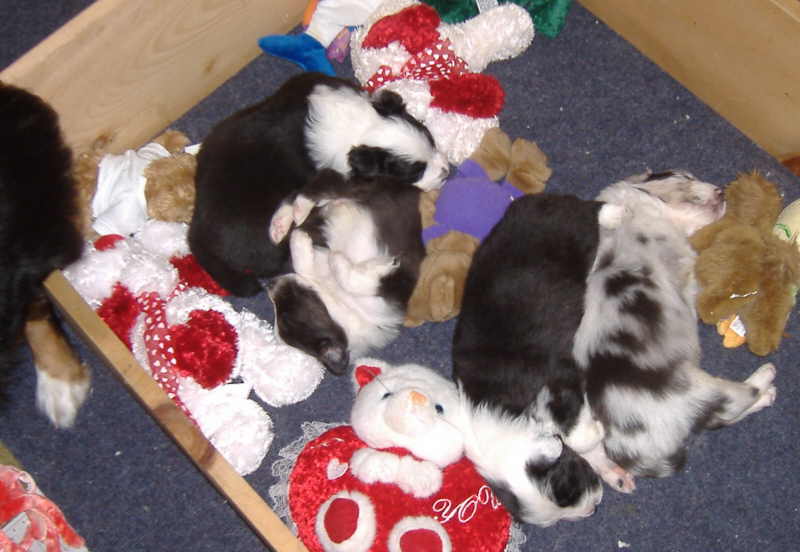
|
*
Charlie, Skipper, Annie and Stryker @ 3 weeks
*
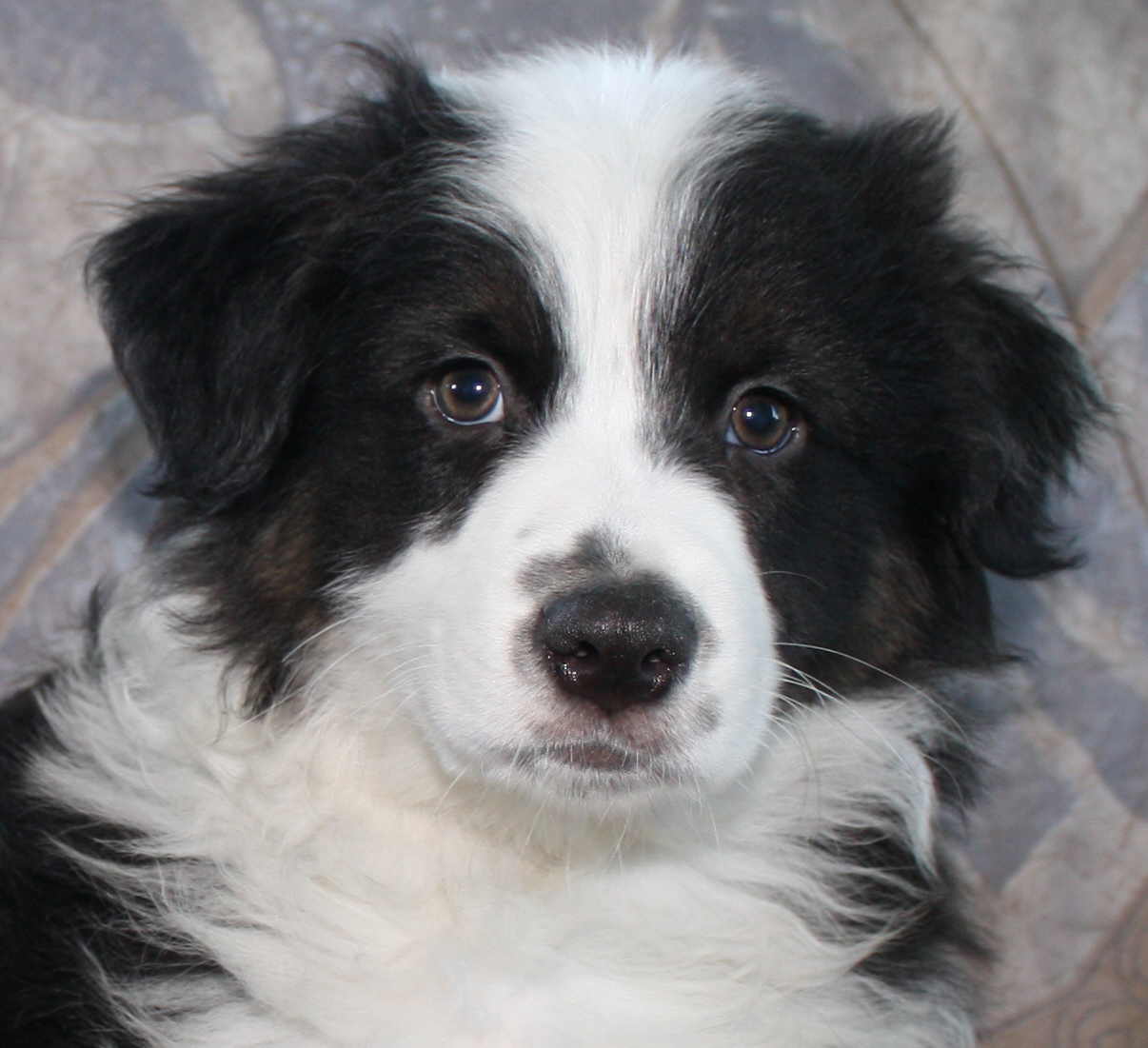
|
A chance to make a positive difference in life
*
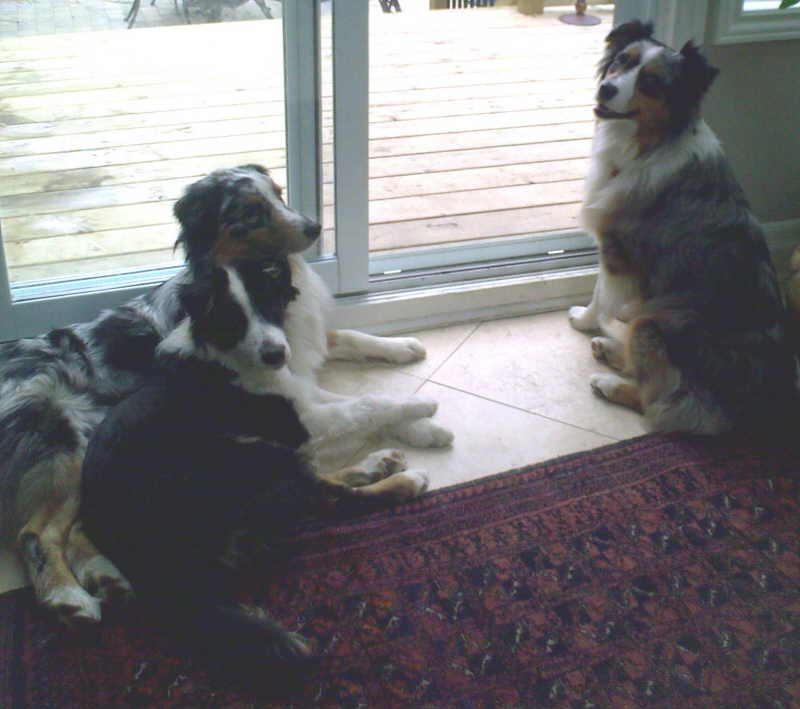
|
*
Thanks to everyone who helped and MADE the difference!
*
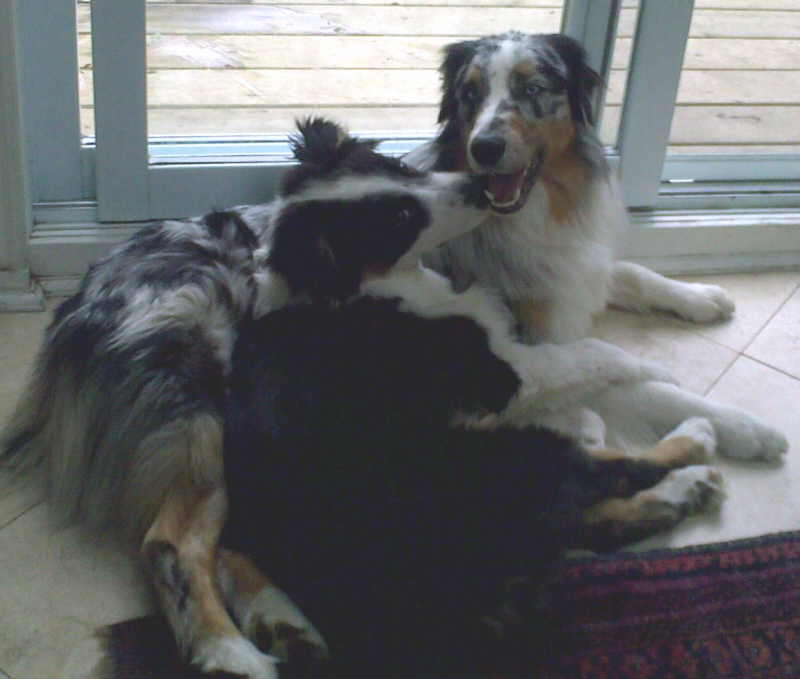
|
*